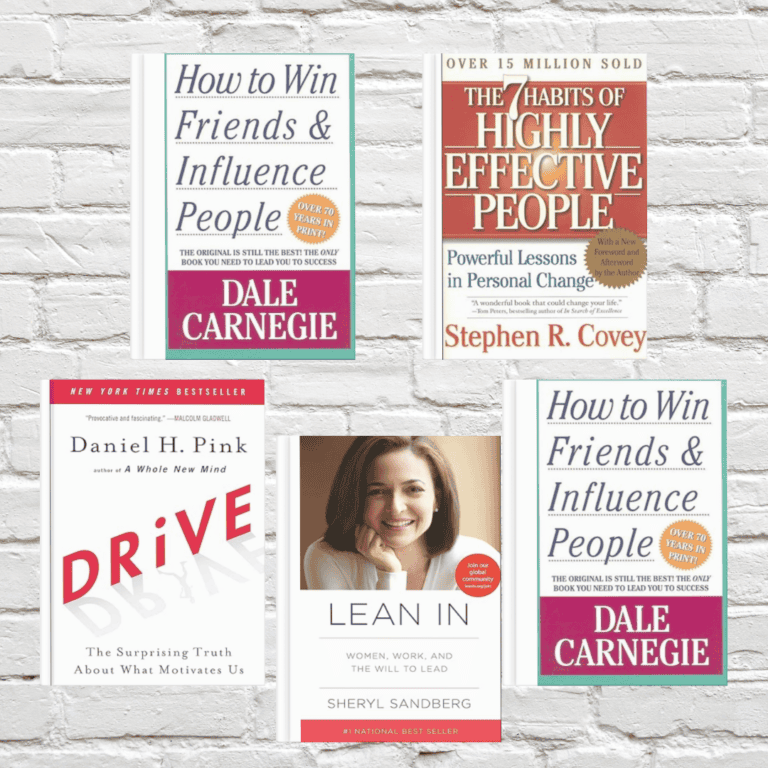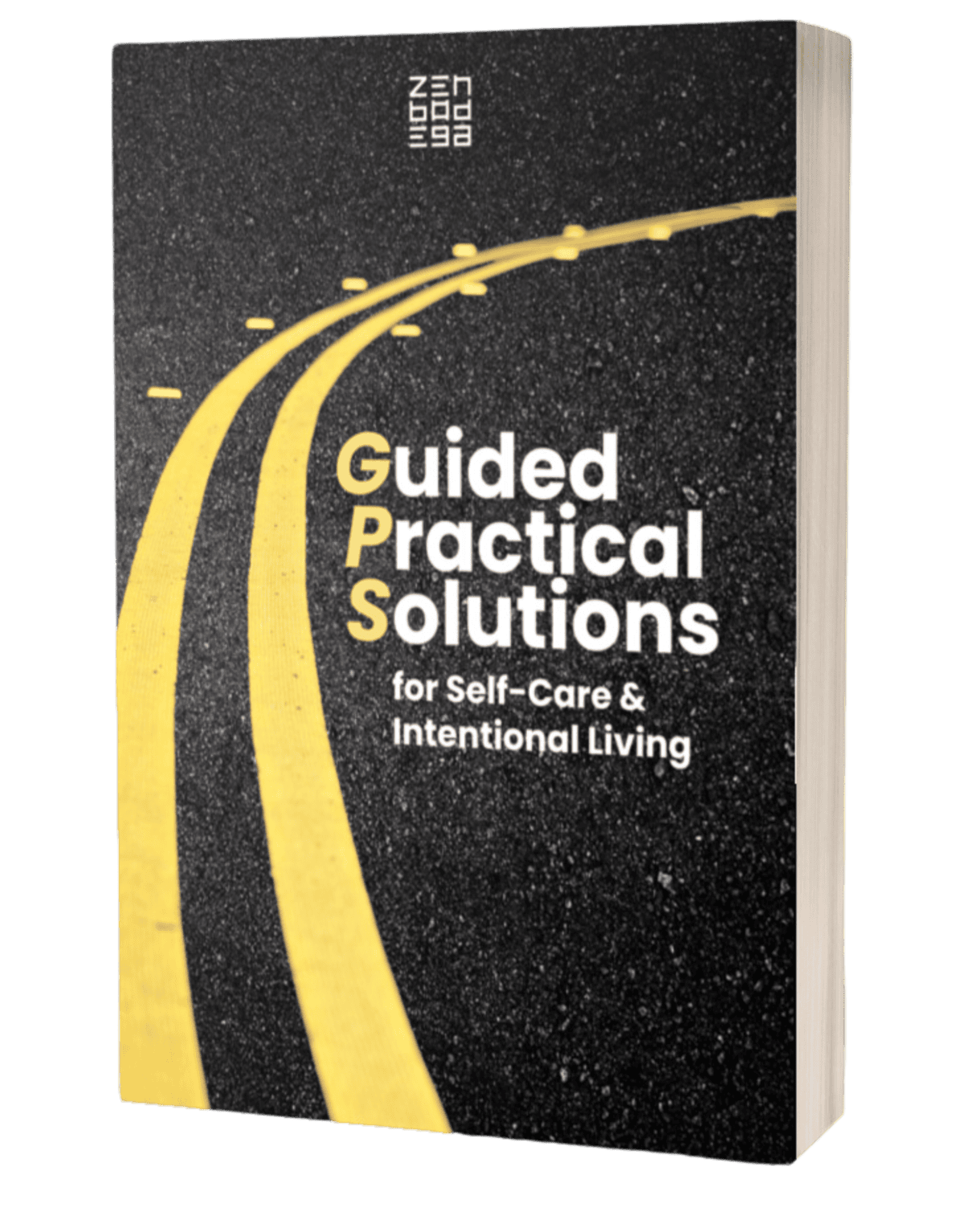Mastering Your Career Journey: 8 Proven Strategies for Intentional Success
Let’s face it – navigating the twists and turns of a career development can be quite the journey. From the uncertainty of choosing the right career path to the challenges that pop up along the way, it’s safe to say that we’ve all been there.
Whether you’re just starting out or you’ve been on this road for a while, the world of career development is full of opportunities and obstacles that can leave you feeling both exhilarated and overwhelmed.
In this article, I’ll share eight proven strategies for intentional success that have personally worked for me and the people around me, aimed at providing you with actionable advice for advancing your career in the real world.
Strategy 1: Understanding Yourself and Setting Realistic Goals

Understanding yourself and setting achievable career goals are pivotal steps in the intentional career development process. Begin by exploring your strengths and interests through simple exercises like identifying the tasks at work that you enjoy the most or seeking feedback from colleagues about your standout qualities.
For instance, if you find that you excel in problem-solving and have a passion for helping others, you might discover a potential career path in counseling or coaching.
Once you have a clearer picture of your strengths and interests, focus on setting clear, motivating goals. Avoid vague objectives and instead break down your ambitions into manageable steps. This way, seeing your career path will be easier and more doable.
For example, if you aspire to transition into a leadership role, start by taking courses or seeking mentorship to acquire the necessary skills and experience.
Getting that dream job can be possible with proper career development planning by understanding your strengths and setting realistic goals.
Strategy 2: Embracing Lifelong Learning in Small Steps

In today’s ever-evolving job market, continuous skills development is essential, but it doesn’t have to be overwhelming. Instead, focus on these practical steps:
- Learning in Small Increments: Instead of tackling a massive learning project, break it down into manageable chunks. For example, if you’re in marketing, focus on mastering one digital marketing skill at a time, like social media management or email marketing. It’s like adding building blocks to your career, one piece at a time, ensuring you stay up-to-date without overwhelming yourself.
- Identifying Key Skills: Start by identifying the skills and knowledge areas in demand in your field. For instance, if you’re in software development, research job descriptions and talk to professionals in your network to pinpoint specific skills like Python programming or web development. By focusing on these key skills, you can tailor your learning journey effectively.
- Accessible Learning Resources: When it comes to accessible learning resources, you have numerous options that won’t break the bank. Consider online courses, webinars, or micro-learning platforms that offer flexibility. These platforms make it easy to learn at your own pace, making lifelong learning more achievable.
Strategy 3: Networking Made Easy

In the realm of intentional career development, networking often takes center stage. But fear not, for networking is not as intimidating as it may seem.
As a musician, I’ve learned that networking isn’t about wearing fancy suits and schmoozing at exclusive events. It’s about building relationships and connections in my field. It’s all about the soft skills and your communication skills.
I learned that these connections can happen in various settings – from jamming with fellow musicians at local gigs and engaging in online music communities, to attending workshops and music festivals. It’s about finding and nurturing those connections that resonate with my musical journey and aspirations.
I saw my career development journey as a lifelong process filled with interpersonal and intrapersonal connections.
You don’t need to be an extrovert, and you certainly don’t need a rehearsed elevator pitch. It’s a genuine exchange of ideas, experiences, and support that can happen in various settings.
Practical Tips for Effective Networking in Daily Life
Networking isn’t confined to formal events; it’s a part of our everyday interactions. Here are some actionable strategies to make the most of these opportunities:
- Embrace Active Listening: Whether you’re at a casual meetup, a professional conference, or even in line at your favorite coffee shop, practice active listening. Pay close attention to what others are saying, showing genuine interest in their stories and viewpoints.
- Engage with Curiosity: Spark conversations by asking open-ended questions. This not only shows your interest but also provides a deeper understanding of the person you’re speaking with. It’s a great way to discover common interests and potential areas for collaboration.
- Share Your Passion: When it’s your turn to speak, share your experiences and insights with enthusiasm. Your passion can be contagious and memorable, making you stand out in the minds of your new connections.
- Offer Value: Think about how you can be of service to others. Maybe you have a skill, contact, or piece of advice that could be beneficial. Networking is a two-way street; it’s as much about giving as it is about receiving.
- Follow Up Thoughtfully: After your initial meeting, send a personalized message or email. Mention something specific from your conversation to show that you were truly engaged. This can be a great way to solidify the connection and set the stage for future interactions.
- Utilize Social Media Wisely: Platforms like LinkedIn are excellent for maintaining and expanding your professional network. Connect with the people you meet, share relevant content, and participate in discussions to keep your network active and engaged.
- Be Consistent: Networking is an ongoing process. Regularly attend events, participate in community activities, and stay in touch with your contacts. Consistency helps in building stronger, more meaningful relationships over time.
Strategy 4: Building Your Personal Brand Simply

Your personal brand is a valuable asset in intentional career development, and it doesn’t have to be complex.
Building your personal brand starts with self-awareness. Identify your unique strengths, values, and what you want to be known for professionally. Craft a clear and concise personal brand statement that reflects your expertise. Share your knowledge through blogs, articles, or social media to establish yourself as a thought leader. Consistency in your messaging and actions reinforces your personal brand over time.
Using social media wisely for career growth
Social media is a powerful tool for personal branding. Here are some tips that would help you with your social media presence:
- Platform Precision: Choose social media platforms that align with your desired career and industry. If you’re in marketing, focus on LinkedIn and Twitter; if you’re in a visual field like design, Instagram might be more suitable.
- Engagement Etiquette: Engage with industry professionals by leaving thoughtful comments on their posts. It’s like having a conversation at a networking event, but online. Sharing your perspective and showing genuine interest can go a long way.
- Share Gems, Not Pebbles: Share valuable content that you genuinely find interesting or informative. It’s like passing on a helpful tip to a friend. This could be articles, videos, or even your own insights on industry trends.
- Consistent Updates: Regularly update your profiles, just as you keep your resume current. When you complete a project or earn a certification, update your online presence to reflect these achievements. It’s like keeping your professional wardrobe up to date.
- Personality Plus Professionalism: Infuse a touch of your personality into your posts. Think of it as sharing a bit about your weekend plans during a coffee break chat at work. It humanizes your online presence and makes you relatable.
- Networking Know-How: Use social media as a tool to expand your network. Connect with colleagues, mentors, and industry peers, much like you would at a conference. Building relationships can lead to exciting opportunities.
- Time Slot Your Social: Dedicate specific times for social media engagement to prevent it from taking over your day. It’s like scheduling a meeting – you allocate time for it, but it doesn’t consume your entire day.
By following these tips, you can make the most of social media for your career growth without it feeling like a daunting task. It’s about integrating these steps seamlessly into your professional journey, just as you would with any other aspect of your career.
Strategy 5: Making Smart Career Moves

In your journey of intentional career development, making smart career planning can propel you forward to a promotion or a new job. You can follow these suggestions to make smarter career moves:
- Spotting Opportunities: Start by paying attention to your current role. Identify tasks or projects that genuinely interest you and align with your skills. For example, if you’re a project manager who enjoys data analysis, you might volunteer to create performance reports to uncover areas for improvement. Opportunities often hide in plain sight.
- Embracing Change: Don’t let the fear of change paralyze you. When contemplating a career shift, begin by evaluating your strengths and interests. For instance, if you’ve been in sales but have a passion for marketing, consider how your communication and relationship-building skills can be applied to a marketing role. Melanie, a former sales executive, transitioned into a successful marketing career by leveraging her ability to understand customer needs and communicate value effectively.
- Balancing Ambition and Realism: Ambition can be a powerful motivator, but it’s important to strike a balance between your aspirations and practicality. Set clear, achievable goals, both short-term and long-term. For instance, if you aspire to become a senior manager, start by mastering your current role’s responsibilities and seeking additional leadership opportunities within your team. Remember that steady progress often leads to significant achievements. Sarah, a determined marketing specialist, worked her way up to a senior management position by consistently expanding her skills and taking on leadership responsibilities, one step at a time.
Strategy 6: Achieving Work-Life Balance

Balancing work and life is essential for intentional career development. Balancing your career and personal life can be achieved by prioritizing time management, and setting boundaries for work hours and breaks.
Break tasks into manageable chunks to reduce stress and regularly assess your workload to avoid burnout, and don’t hesitate to delegate tasks when necessary!
Remember that a balanced life contributes to your long-term career success.
As a musician, I understand that intentional career development doesn’t mean I have to sacrifice my personal interests. I need to make time for hobbies and personal pursuits, scheduling them into my routine just like my music sessions.
Whether it’s diving into a captivating book, experimenting with painting, or simply unwinding with family and friends, these activities are vital. They contribute significantly to my overall well-being.
Engaging in a variety of interests isn’t just a form of relaxation for me; it’s a source of inspiration. These pursuits enhance my creativity, influence my music, and improve my problem-solving skills.
Strategy 7: Finding the Right Mentorship

In the journey of professional growth, finding the right mentorship can be a game-changer. To find mentors in everyday connections, look within your existing network, attend industry events, and utilize online platforms like LinkedIn.
Be proactive and clear about your goals when reaching out to potential mentors. Without formal programs, you can still make the most of mentorship by setting clear objectives, establishing a regular schedule for interactions, preparing for meetings, seeking constructive feedback, and showing gratitude for your mentor’s guidance.
Inspirational stories abound, like a young app developer guided by a tech entrepreneur, an aspiring writer mentored by an established author, or a career changer who successfully transitioned industries with the help of a mentor found on LinkedIn.
These examples highlight the transformative power of mentorship in providing invaluable guidance, insights, and opportunities that can significantly shape one’s career path.
Strategy 8: Staying Flexible and Resilient

Change is inevitable in the workplace. Resilience is a skill that can be cultivated through small daily practices. Here are some helpful tips for you:
- Start Small with Change: Begin by altering small routines in your day, like taking a different route to work or trying a new coffee shop. This helps you get comfortable with change on a manageable scale.
- Set Achievable Daily Goals: Break your tasks into small, manageable goals. Completing these can boost your confidence and help you feel more in control during times of change.
- Build a Simple Self-Care Routine: Incorporate brief self-care activities into your day. This could be a 10-minute walk, a short meditation session, or just some quiet time with your favorite book.
- Practice Mindfulness in Everyday Activities: Try to be fully present in whatever you’re doing, whether it’s eating lunch or having a conversation. This helps in reducing stress and improving focus.
- Develop a ‘Can-Do’ Attitude: When faced with a challenge, remind yourself of past successes and tell yourself, “I can handle this.”
By incorporating practical tips for adaptability, daily resilience-building practices, and drawing inspiration from real-life examples of bouncing back, you can navigate the challenges of career development with greater flexibility and resilience, ensuring that you continue to thrive in your intentional career journey.
The Takeaway
Today’s job market can be tricky – professional development opportunities can be scarce especially when your career path is not alighed with your skills and goals. From setting achievable goals to embracing lifelong learning, maintaining work-life balance, and staying resilient, each strategy offers a building block towards a fulfilling career.
Remember, career progress isn’t about quick fixes; it’s about steady, manageable steps. Whether you’re aiming for a promotion, considering a career change, or simply seeking a better work-life mix, every effort matters.
Intentional career development is a personal journey where progress is made one practical step at a time. So, start with those doable first steps, knowing that meaningful career growth happens steadily, one move at a time.





